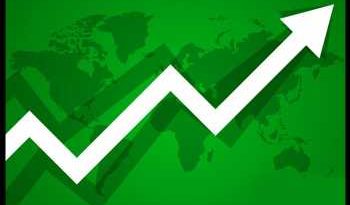ECB Lifts Growth Forecasts, Sees Underlying Inflation ‘Subdued’
The European Central Bank on Thursday raised Eurozone growth forecasts for this year and next and said the risks to the outlook were balanced.
Policymakers also raised the inflation forecast for the two years, but expect underlying inflationary pressures to remain subdued.
The bank’s rate-setting body, the Governing Council, avoided signaling a tapering of its asset purchases, economists said.
“Our new staff projections point to a gradual increase in underlying inflation pressures throughout the projection horizon, although the pressures remain subdued in the context of still significant economic slack that will only be absorbed gradually over the projection horizon,” ECB President Christine Lagarde said in the press conference.
“Headline inflation is expected to remain below our aim over the projection horizon.”
The ECB targets inflation “below, but close to 2 percent”.
Low wage pressures and an appreciation in the euro exchange rate are expected to keep inflationary pressures subdued.
In its latest round of projections, the ECB staff raised the inflation forecast for this year to 1.9 percent from 1.5 percent. The outlook for next year was lifted to 1.5 percent from 1.2 percent. The porjection for 2023 was retained at 1.4 percent.
Base effects, transitory factors and an increase in energy prices have pushed inflation higher in recent months and this is expected to continue in the second half of this year, before it declines at the start of next year as temporary factors fade out, the bank said.
Earlier on Thursday, the bank decided to leave interest rates and its asset purchases unchanged, as expected.
The central bank raised the growth projections for this year and next, citing progress in vaccination campaigns that allows a further relaxation of containment measures.
Stronger global and domestic demand, as well as by continued support from both monetary policy and fiscal policy are also expected to underpin growth.
Eurozone growth forecast for this year was raised to 4.6 percent from 4.0 percent. The outlook for next year was lifted to 4.7 percent from 4.1 percent. The projection for 2023 was retained at 2.1 percent.
“Overall, we see the risks surrounding the euro area growth outlook as broadly balanced,” Lagarde said.
When hard data start to catch up with strong soft indicators, confirming the view of a substantial rebound of the eurozone economy, support for asset purchases under the umbrella of pandemic-fighting will drop, ING economist Carsten Brzeski said.
“The 9 September meeting could be the moment at which the ECB will at least start philosophizing about tapering,” the economist said.
“However, as long as core inflation projections remain at their current low levels, tapering will rather be a rotation from one asset purchase programme to the other than a significant outright reduction of the purchases.”
Source: Read Full Article

